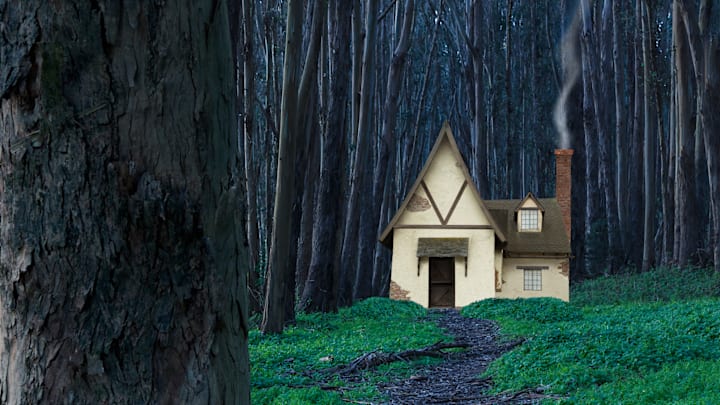At Mama Bear’s Cookies in Sullivan, New Hampshire, customers looking for sweets can pick up their order at a literal cottage on the property of owner Bianca Alicea. It’s a charming detail that led local news outlet The Keene Sentinel to declare Alicea’s venture “a new Sullivan cookie business that takes ‘cottage industry’ literally.”
The phrase cottage industry sees heavy use in media. But what exactly does it mean? Does an actual cottage need to be involved? And does it have anything to do with cottage cheese?
- The Definition of Cottage Industry
- The Origin of Cottage Industry
- Benefits of a Cottage Industry
- Cottage Industry and Cottage Cheese
The Definition of Cottage Industry
Put simply, a cottage industry is a type of business that leans small. Often entrepreneurial, these ventures use grassroots manufacturing and marketing to appeal to a targeted audience. If you make homemade protein bars for limited distribution, you probably belong to a cottage industry of high-quality health snacks. If you’re Quest sending bars to thousands of grocery stores throughout the country, you’re a major commercial entity.
Cottage industries can be small in scale—think home kitchen—or in their potential consumer base. A YouTube personality might be considered a cottage industry for making videos appealing to a narrow audience of, say, fans of foreign horror films.
But the term can also apply to a business seeking a wide audience even if the focus is limited. In 2015, The New York Times observed a cottage industry of books, films, and other media centered on late Apple co-founder Steve Jobs. Crafting a project solely about Jobs was considered narrow in scope, yet the result—like a biography—could reach millions. Likewise, filmmaker George Romero made a cottage industry out of zombie movies.
The Origin of Cottage Industry
Nailing the etymology of cottage industry can be tricky. The Oxford English Dictionary places its first use in 1849, when the Dublin newspaper Freeman’s Journal wrote: “Do you wish to make your labourers [sic] comfortable? Teach their children the use of the loom, and every kind of cottage industry.”
The phrase in this context may actually date earlier. One 1822 newspaper mention referred to “cottagers” engaged in “cottage industry” and “enjoying the profits arising from their own labour [sic] and industry.”
Most likely, it was a reference to laborers working out of their homes, or cottages, either for manufacturing or administrative work.
As for cottage itself: That refers to a modest dwelling. Originally, cottages were home to cotters, or peasant farmers, in the Middle Ages. Today, it’s more associated with smaller homes that can—but don't have to be—located near water.
Benefits of a Cottage Industry
Taken as a euphemism for small business, there are some obvious benefits to a cottage industry. Working from home means low overhead, low start-up costs, and minimal investment.
The benefits for consumers? Supporting local business and, in many cases, procuring higher-quality goods than mass-produced products.
Cottage Industry and Cottage Cheese
Is there any relationship between a cottage industry and cottage cheese? The curd-heavy milk product has been around for thousands of years, but earned its name in the mid-1800s, when butter makers used leftover milk to make the cheese in their cottage or farmhouse. Given the small business nature of such manufacturing, it’s reasonable to declare cottage cheese a cottage industry, at least at that time.
Read More About Language Here:
Have you got a Big Question you'd like us to answer? If so, let us know by emailing us at bigquestions@mentalfloss.com.
